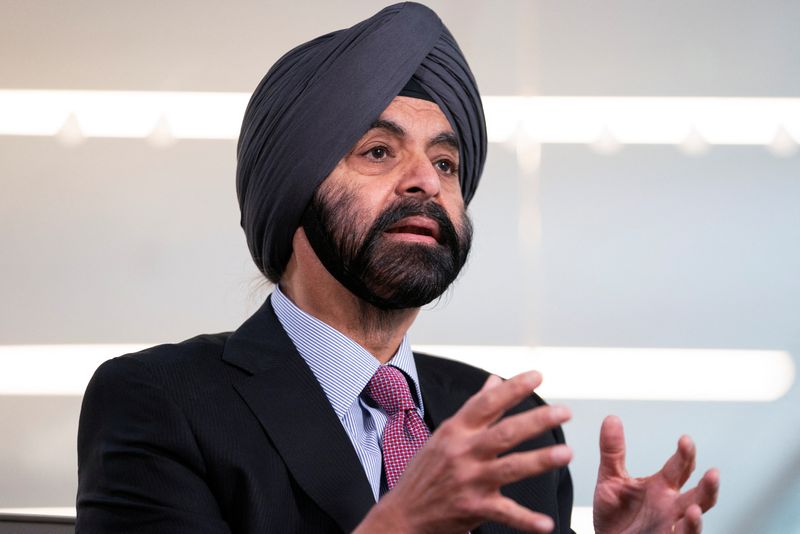By Andrea Shalal and David Lawder
WASHINGTON (Reuters) -World Bank President Ajay Banga on Tuesday warned that a significant widening of the Israel-Gaza war could lead to major impacts on the global economy, calling the steep loss of civilian lives in the region “unconscionable.”
Speaking in a Reuters NEXT Newsmaker interview, Banga said the war has had a relatively small impact on the global economy thus far, but a significant widening of the conflict would draw in other countries that are larger contributors to global growth, including commodity exporters.
“First of all, I think this unbelievable loss of life – women, children, others, civilians, is just unconscionable on all sides,” Banga said. “The economic impact of this war, on the other hand, depends a great deal on how much this spreads.”
“If it spreads regionally, then it becomes a completely different issue because now you start going into places that are far larger contributors to the world economy, both in terms of dollars, but also in terms of minerals and metals and oil and the like,” he said.
Some Western countries are pushing for a ceasefire between Israel and Lebanon, as well as in Gaza, though the United States, Israel’s strongest ally, has expressed its continued support and is sending it an anti-missile system and troops.
Israel launched the offensive against Hamas after the militant group’s Oct. 7 attack on Israel, in which 1,200 people were killed and around 250 taken hostage to Gaza, by Israeli tallies. More than 42,000 Palestinians have been killed in the offensive so far, according to Gaza’s health authorities.
Israeli strikes have also killed at least 2,350 people over the last year in Lebanon and left nearly 11,000 wounded, according to the Lebanese health ministry, and more than 1.2 million people have been displaced.
Banga said war damage from Israeli strikes on Gaza is now probably in the $14-20 billion range, and destruction from Israel’s bombing of southern Lebanon will add to that regional total.
Banga said the World Bank had provided $300 million, six times what was normally given, to the Palestinian Authority to help it manage the crisis on the ground, but that was small compared to the “large number” it would ultimately need.
He said the multilateral development bank had also assembled a group of experts from Jordan, Israel, Palestine, Europe, the U.S. and Egypt to study what short- and longer-term actions it could take if a peace agreement could be reached.
“We’re going to have to figure out how to have that publicly discussed and debated and then find the resources for it,” he said, adding that the effort would require private and public resources.



